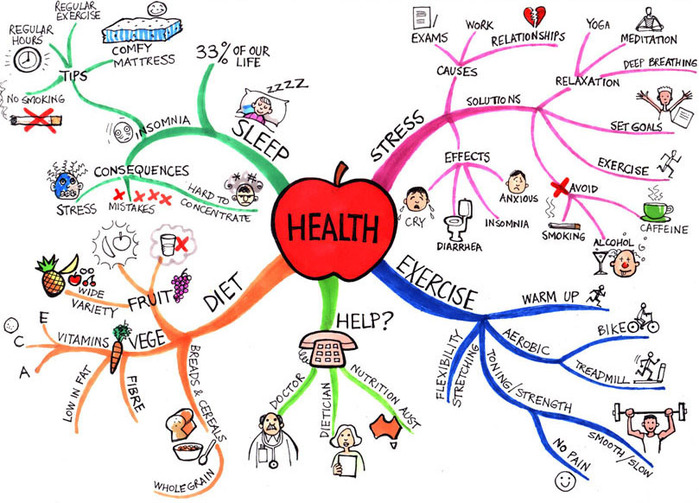Resilience: The Key to Overcoming Adversity
We all face challenges in life, whether it’s a difficult job, a personal loss, or a global pandemic. What sets successful people apart is their ability to bounce back from setbacks and keep moving forward. This trait is known as resilience.
Resilience is the ability to adapt to change, recover from stress, and overcome adversity. It’s not something you’re born with; it’s a skill that can be developed through practice and experience. Resilient people have a positive outlook on life, are able to manage their emotions effectively, and have strong social support networks.
One of the most important aspects of resilience is the ability to reframe negative events in a positive light. Instead of dwelling on what went wrong, resilient people focus on what they can learn from the experience and how they can use it to grow and improve in the future. They see challenges as opportunities for growth rather than obstacles to be overcome.
Another key aspect of resilience is emotional regulation. Resilient people are able to manage their emotions effectively by recognizing when they’re feeling overwhelmed and taking steps to reduce stress. This might involve practicing mindfulness or engaging in physical activity like yoga or running.
Finally, resilient people have strong social support networks that provide them with encouragement, advice, and practical help when needed. They recognize that asking for help is not a sign of weakness but rather a sign of strength.
So how can you develop resilience? Here are some tips:
1) Cultivate optimism: Focus on the positive aspects of your life and try to reframe negative events in a more positive light.
2) Practice emotional regulation: Learn techniques like mindfulness or deep breathing that can help you manage your emotions more effectively.
3) Build strong relationships: Make time for friends and family members who provide you with emotional support and practical help when needed.
4) Take care of yourself: Get enough sleep, eat a healthy diet, and engage in regular physical activity.
5) Practice problem-solving: Develop your problem-solving skills by breaking down complex problems into smaller steps and coming up with creative solutions.
In conclusion, resilience is a key trait that can help you overcome adversity and achieve success in life. By cultivating optimism, practicing emotional regulation, building strong relationships, taking care of yourself, and practicing problem-solving skills, you can develop the resilience you need to thrive in today’s challenging world.
7 Common Questions About Resilience: Understanding, Building, and Maintaining It for Better Mental Health
- What is resilience?
- How can I build resilience?
- What are the benefits of being resilient?
- How can I maintain my resilience?
- How do I know if I’m resilient enough?
- What strategies can help me become more resilient?
- How does resilience affect mental health?
What is resilience?
Resilience is the ability to adapt to change, recover from stress, and overcome adversity. It is the capacity to bounce back from setbacks, challenges, and difficult situations. Resilient people have a positive outlook on life, are able to manage their emotions effectively, and have strong social support networks. Resilience is not something you’re born with; it’s a skill that can be developed through practice and experience. It involves being able to reframe negative events in a positive light, managing emotions effectively, developing problem-solving skills, building strong relationships, and taking care of oneself. Resilience is an important trait that can help individuals thrive in today’s challenging world.
How can I build resilience?
Building resilience is a process that requires intentional effort and practice. Here are some practical steps you can take to build resilience:
- Develop a positive mindset: Focus on the positive aspects of your life and try to reframe negative events in a more positive light. Practice gratitude by regularly reflecting on things you are thankful for.
- Build strong relationships: Make time for friends and family members who provide you with emotional support and practical help when needed. Surround yourself with people who uplift and encourage you.
- Take care of yourself: Get enough sleep, eat a healthy diet, and engage in regular physical activity to maintain good physical health. Take time for self-care activities like reading, taking a bath, or practicing meditation.
- Practice problem-solving: Develop your problem-solving skills by breaking down complex problems into smaller steps and coming up with creative solutions. This will help you feel more empowered when faced with challenges.
- Learn from your mistakes: Instead of dwelling on what went wrong, focus on what you can learn from the experience and how you can use it to grow and improve in the future.
- Practice mindfulness: Mindfulness is the practice of being present in the moment without judgment. It can help you manage stress and reduce anxiety by helping you stay focused on the present rather than worrying about the future or dwelling on the past.
- Seek professional support if needed: If you’re struggling with mental health issues or facing significant life challenges, don’t hesitate to seek professional support from a therapist or counselor.
Remember that building resilience is not something that happens overnight – it’s a process that requires ongoing effort and practice over time. By incorporating these practices into your daily routine, you can develop greater resilience and better navigate life’s challenges with confidence and grace.
What are the benefits of being resilient?
There are many benefits to being resilient, including:
1) Better mental health: Resilient people are better able to cope with stress and manage their emotions effectively. This can lead to lower rates of depression and anxiety.
2) Improved physical health: Resilient people tend to take better care of themselves by eating a healthy diet, engaging in regular physical activity, and getting enough sleep. This can lead to better overall health and a reduced risk of chronic diseases like heart disease and diabetes.
3) Increased productivity: Resilient people are better able to bounce back from setbacks and stay focused on their goals. This can lead to increased productivity at work or in other areas of life.
4) Stronger relationships: Resilient people tend to have stronger social support networks, which can provide them with emotional support during difficult times.
5) Greater sense of purpose: Resilient people often have a strong sense of purpose and meaning in life. They see challenges as opportunities for growth rather than obstacles to be overcome.
6) Improved problem-solving skills: Resilient people are often better at problem-solving because they’re able to approach challenges with a positive mindset and think creatively about solutions.
Overall, being resilient can help you lead a happier, healthier, and more fulfilling life. By developing your resilience skills, you’ll be better equipped to handle whatever challenges come your way.
How can I maintain my resilience?
Maintaining resilience requires ongoing effort and practice. Here are some tips on how to maintain your resilience:
- Stay connected with others: Maintaining strong relationships with friends, family, and colleagues is important for building a support network that can help you through difficult times. Make time for social activities and prioritize spending time with people who make you feel good.
- Practice self-care: Taking care of your physical, emotional, and mental health is essential for maintaining resilience. This includes getting enough sleep, eating a healthy diet, exercising regularly, and engaging in activities that bring you joy.
- Develop coping strategies: Identify healthy coping strategies that work for you when you’re feeling stressed or overwhelmed. This might include deep breathing exercises, meditation, journaling, or talking to a trusted friend or therapist.
- Set realistic goals: Setting achievable goals can help you stay motivated and focused on the future. Break down larger goals into smaller steps to make them more manageable.
- Maintain perspective: When facing challenges or setbacks, try to maintain perspective by focusing on the bigger picture and reminding yourself of your strengths and accomplishments.
- Learn from past experiences: Reflect on past experiences where you have shown resilience and identify what worked well for you in those situations. Use this knowledge to develop strategies for future challenges.
Remember that maintaining resilience is an ongoing process that requires effort and commitment. By prioritizing self-care, building strong relationships, developing coping strategies, setting achievable goals, maintaining perspective, and learning from past experiences, you can continue to build your resilience over time.
How do I know if I’m resilient enough?
Resilience is not something that you either have or don’t have. It’s a skill that can be developed over time and through experience. So, rather than asking yourself if you’re resilient enough, a better question to ask might be, “How can I develop my resilience?”
Here are some signs that you may already possess some level of resilience:
- You’re able to adapt to change: Resilient people are flexible and able to adjust their plans when things don’t go as expected.
- You’re able to bounce back from setbacks: Resilient people don’t give up easily. Instead, they learn from their mistakes and use them as opportunities for growth.
- You have a positive outlook: Resilient people tend to have a more optimistic outlook on life, even in the face of adversity.
- You have strong social support: Resilient people tend to have strong relationships with friends and family members who provide them with emotional support during difficult times.
- You practice self-care: Resilient people take care of themselves physically, mentally, and emotionally through activities like exercise, meditation, or therapy.
However, it’s important to remember that everyone faces challenges in life and even the most resilient person will struggle at times. It’s okay to feel overwhelmed or stressed out from time to time. The key is how you respond to these challenges and whether you’re willing to put in the effort to develop your resilience over time.
If you feel like you could benefit from developing your resilience further, there are many resources available such as books, online courses or workshops focused on building resilience skills. Additionally, seeking support from a therapist or counselor can help you develop coping strategies for dealing with stressors and building your resilience over time.
What strategies can help me become more resilient?
There are several strategies that can help you become more resilient. Here are some tips:
- Build a strong support system: Having a strong support system of friends and family members who can provide emotional support and practical help in times of need is essential for resilience.
- Practice self-care: Taking care of your physical and mental health is important for building resilience. This includes getting enough sleep, eating a healthy diet, exercising regularly, and engaging in activities that bring you joy.
- Develop problem-solving skills: Learning how to break down complex problems into smaller steps and coming up with creative solutions can help you navigate difficult situations more effectively.
- Cultivate optimism: Focusing on the positive aspects of your life and reframing negative events in a more positive light can help you develop a more optimistic outlook on life.
- Practice mindfulness: Mindfulness practices like meditation or deep breathing can help you manage stress and regulate your emotions more effectively.
- Learn from failure: Viewing failure as an opportunity for growth rather than as a personal setback can help you build resilience by allowing you to learn from your mistakes and move forward with greater confidence.
- Set realistic goals: Setting realistic goals that are achievable but challenging can help you build confidence and develop the resilience needed to overcome obstacles along the way.
By implementing these strategies, you can develop the resilience needed to navigate life’s challenges with greater ease and confidence, ultimately leading to greater success and happiness in all areas of your life.
How does resilience affect mental health?
Resilience plays a significant role in mental health. It is a critical factor in how people cope with stress, adversity, and trauma. Resilient individuals are better equipped to manage their emotions and bounce back from challenging situations, which can have a positive impact on their mental health.
One of the most significant benefits of resilience on mental health is that it helps individuals cope with stress. Resilient people are better able to manage their emotions and regulate their stress response, which can help prevent the negative effects of chronic stress on mental health. They are more likely to view stressful situations as challenges rather than threats, which can reduce feelings of anxiety and depression.
Resilience also helps individuals maintain a positive outlook on life. Resilient people are more likely to focus on the positives in their lives, even when faced with adversity. This positive mindset can help protect against depression and other mood disorders.
Moreover, resilience can improve social connections and support networks. Resilient individuals tend to have strong relationships with others who provide them with emotional support during difficult times. This social support can help reduce feelings of isolation and loneliness, which are risk factors for poor mental health outcomes.
Finally, resilience is associated with greater self-esteem and self-efficacy. Resilient individuals believe in themselves and their ability to overcome challenges, which can boost confidence and self-worth.
In conclusion, resilience has a significant impact on mental health outcomes. By developing resilience skills such as emotional regulation, problem-solving, optimism, building strong relationships, taking care of oneself physically and mentally, individuals can improve their ability to cope with stressors and build positive mental health outcomes over time.




